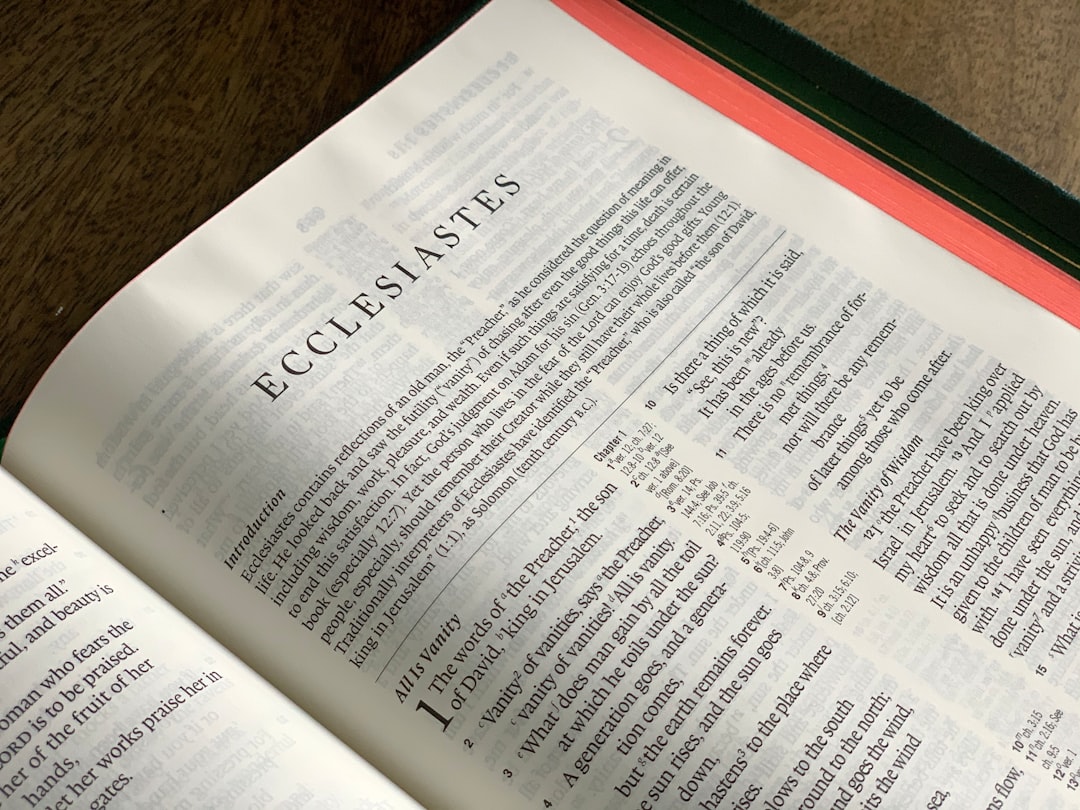Just Because You Have the Scriptures Doesn't Mean You Will Be Judged Differently
Thinking about Romans 2:12-16.

For as many as have sinned without law will also perish without law, and as many as have sinned in the law will be judged by the law (for not the hearers of the law are just in the sight of God, but the doers of the law will be justified; for when Gentiles, who do not have the law, by nature do the things in the law, these, although not having the law, are a law to themselves, who show the work of the law written in their hearts, their conscience also bearing witness, and between themselves their thoughts accusing or else excusing them) in the day when God will judge the secrets of men by Jesus Christ, according to my gospel. (Romans 2:12-16)
In Romans 2, Paul has been focusing on God as the righteous, impartial judge.
He has shown that God will judge according to truth and that those who reject His goodness continue to treasure up His wrath for themselves.
Now, Paul is going to discuss that it doesn’t matter if a person was a Jew or Gentile - or if they had the Law of Moses or not - they would be judged by Jesus Christ.
God will judge the secrets of men by Jesus Christ.
For as many as have sinned without law will also perish without law, and as many as have sinned in the law will be judged by the law…in the day when God will judge the secrets of men by Jesus Christ, according to my gospel. (Romans 2:12, 16)
In the New King James Version, Romans 2:13-15 is a parenthetical thought. That doesn’t mean it isn’t essential, but it does mean it’s a “subpoint” "or “sub thought” to the main point of the section.
The main point is found by putting together Romans 2:12 and 16.
The Holy Spirit’s point through Paul is that those who sinned “without law” (I believe referring to without the law of Moses) would also perish without that same law. Those who had the law of Moses would be judged by it.
The Gentiles.
The Gentile world had the truth, but they suppressed it (Romans 1:18-19). They had to have some law - otherwise, there could be no sin. Sin is “lawless” behavior.
Whoever commits sin also commits lawlessness, and sin is lawlessness. (1 John 3:4)
Paul will make the point in Romans 3:23 that “all have sinned,” - so the Gentiles weren’t without law completely. Whatever law they had (whether it was the Patriarchal Law or some moral code), the Gentiles had not kept it. They would face God’s judgment.
When Gentiles, as a community of people distinct from the Jew; when Gentiles who haven’t been instructed by the Jews; when Gentiles who are not proselytes of the Jews; when such people, without outside interference, just the way they are, do the things of the law, what do you know? THEY HAVE AND ARE UNDER LAW! There can be no excuse for them. They do have law and of course they break it. - McGuiggan, Romans, 98
The Jews.
The Jews, however, would fare no better. Although they had the Law of Moses, merely possessing the Scriptures would not give them a “free pass” at the judgment.
As Paul points out, the doers of the law will be justified, not the hearers only.
Possessing law is no protection from condemnation. The flawless keeping of the law is the only way to gain a verdict of acquittal if one insists on living under the law as a means to a right relationship with God. - McGuiggan, Romans, 95
Even though the Jews had the law of Moses, they were in equally as much trouble as the Gentile. If they tried to stand upon the law of Moses to save themselves, they hadn’t kept it. They had transgressed; they had sinned.
They would stand condemned before God when He judged the “secrets of men by Jesus Christ.”
Having or recognizing law isn’t enough - the law must be satisfied. Someone must fulfill its demands. The Christian has Christ, who fulfilled the law’s demands, as his representative but the moralist, Jew, or Gentile, is in real trouble. - McGuiggan, Romans, 96


